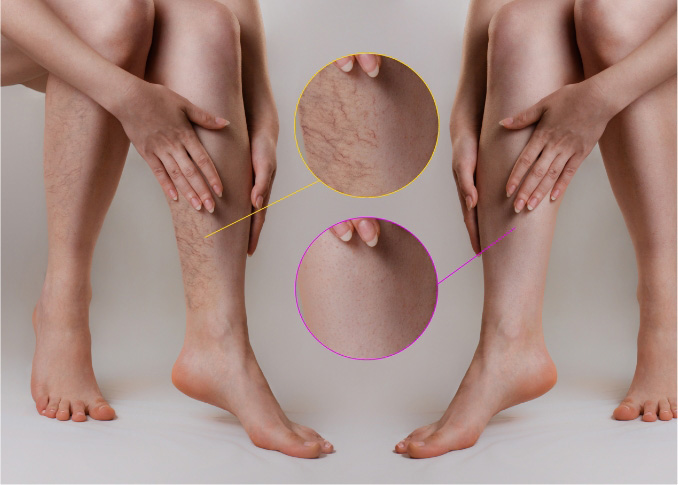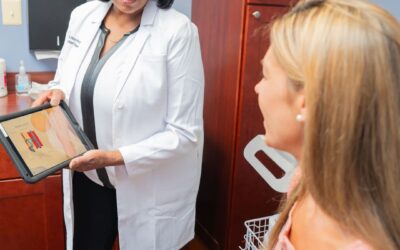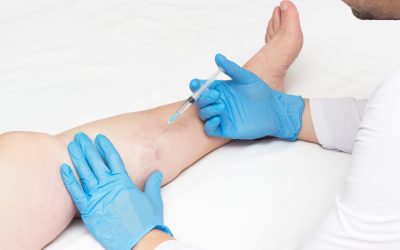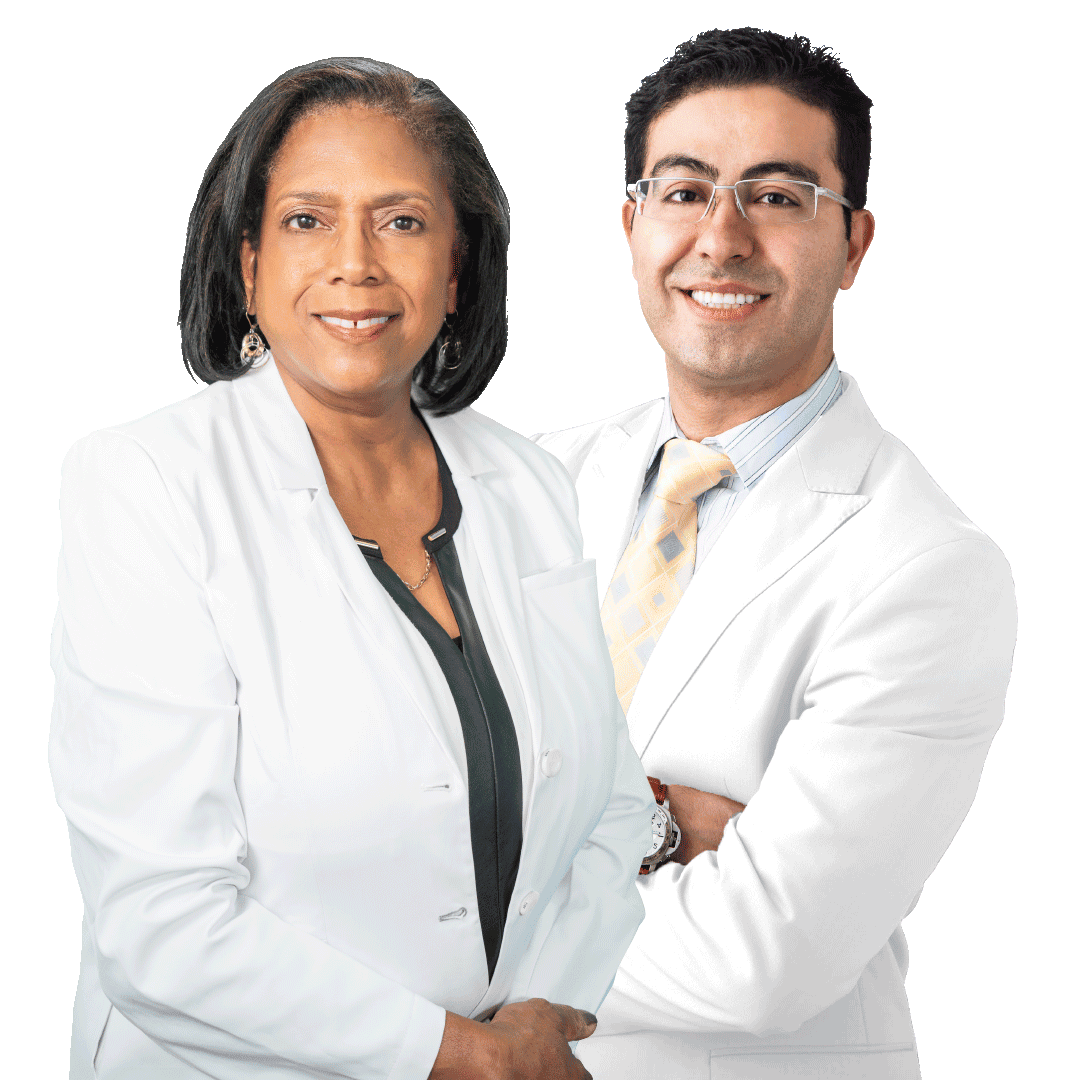Top Maryland Vein Doctors
What Type of Doctor Treats Varicose Veins? And Other FAQs
What type of doctor treats varicose veins?
If you’re dealing with varicose veins, the first step is to schedule a consultation with a vein specialist. A vein specialist is a doctor who specializes in diagnosing and treating conditions that affect the veins. During your consultation, the vein specialist will take a thorough medical history and ask about your symptoms. They will also perform a physical exam, during which they will assess the affected area and check for signs of other conditions that could be causing your symptoms.
Based on the information gathered during your consultation, the vein specialist will develop a treatment plan that is tailored to your individual needs. In some cases, treatment may involve lifestyle changes, such as exercising, increasing activity levels, and exercising. In other cases, treatment may involve a minimally invasive procedure to close off the affected veins, such as endovenous laser ablation, radiofrequency ablation, venaseal, or ambulatory phlebectomy. You must talk to vein doctors about your vein treatments in Maryland.
Maryland Vein Treatment is a state-of-the-art medical center led by some of the most skilled board-certified vein doctors in Maryland. Our vein doctors are experts in curating personalized treatment plans that alleviate your symptoms, remove superficial varicose veins, and treat the root cause of your problems, ensuring long-lasting results. You can find our medical center for vein treatment in Bethesda, Maryland, a short drive from Washington D.C. Please schedule an appointment at your nearest medical center for vein treatment in Maryland.
Do dermatologists deal with varicose veins?
If you have varicose veins, you may be wondering if you need to see a dermatologist. The short answer is that dermatologists do not typically deal with varicose veins. However, they may be able to provide you with information about treatment options and refer you to a vascular specialist or surgeon.
Varicose veins are dilated, tortuous veins that are usually purple or blue in color. They occur when the valves in the veins that normally keep blood flowing in one direction become damaged or incompetent. This can cause blood to pool in the veins, leading to the characteristic bulging and twisted appearance.
While varicose veins can occur anywhere on the body, they are most commonly seen on the legs. This is because standing and walking increases the pressure in the leg veins, which can exacerbate the condition. Most people assume varicose veins are skin problems because they appear on the skin’s surface, but they’re actually caused by a circulatory disorder.
Since dermatologists can only treat skin-related issues, they can’t diagnose and treat the root cause of varicose veins and spider veins. If you have varicose veins, you must consult board-certified vein doctors with specialized training in the diagnosis and treatment of vein disease with minimally invasive procedures, such as laser ablation and venaseal.
When should you see a doctor about varicose veins?
If you have varicose veins, you may be wondering when you should see a doctor about them. The answer is: the moment you notice them!
Varicose veins are caused by a dangerous circulatory disorder called chronic venous insufficiency. This condition occurs when the valves in your veins stop working properly, causing blood to pool in your legs. This can lead to serious health complications, including blood clots, ulcers, and even pulmonary embolism. Early diagnosis and treatment of chronic venous insufficiency is critical to preventing these complications.

We know health insurance is confusing so we will help you check if you’re covered:
FREE Coverage Checker:
If you notice any of the following symptoms, you should see a doctor right away:
- Swelling in your legs
- Aching or cramping in your legs
- Itching or burning in your legs
- Restless legs syndrome
- Skin discoloration in your legs
- Open wounds or ulcers on your legs
- Spider veins and varicose veins
Don’t wait to see a vein doctor if you think you may have chronic venous insufficiency. The sooner you’re diagnosed, the sooner you can start treatment and the better your chances are of preventing serious health complications.
What is a vein specialist called?
A phlebologist is a vein specialist, who is trained to treat conditions that affect the veins. Phlebologists use a variety of techniques to treat vein conditions, including sclerotherapy, endovenous laser treatment, radiofrequency ablation, and ambulatory phlebectomy.
What is the best treatment for varicose veins?
There are many different treatments for varicose veins, and the best treatment may vary depending on the individual. Some common treatments include wearing compression stockings, taking regular breaks during extended periods of sitting or standing, and exercising regularly. But the most effective minimally invasive treatments are sclerotherapy, endovenous laser treatment, radiofrequency ablation, and ambulatory phlebectomy. Your vein doctor will determine the appropriate vein treatment for you.

Visit Our Maryland Vein Treatment Center
Should I wear compression socks for varicose veins?
Compression socks are often recommended for people with varicose veins. While they may not be a cure, they can improve circulation and reduce swelling. Wearing compression socks can also prevent new varicose veins from forming. Compression stockings apply pressure on your leg veins and push some of the accumulated blood to the heart, thus alleviating some of the worst symptoms of vein disease and varicose veins.
What happens if varicose veins are left untreated?
If you have varicose veins and do not seek treatment, the vein can rupture, and you can develop an ulcer. Untreated varicose veins can also lead to more serious conditions such as deep vein thrombosis (DVT). DVT is a blood clot that forms in the deep veins of your leg and can be fatal if it breaks off and travels to your lungs. If you have varicose veins and the signs and symptoms of vein disease, you must undergo treatment promptly to prevent future complications.



